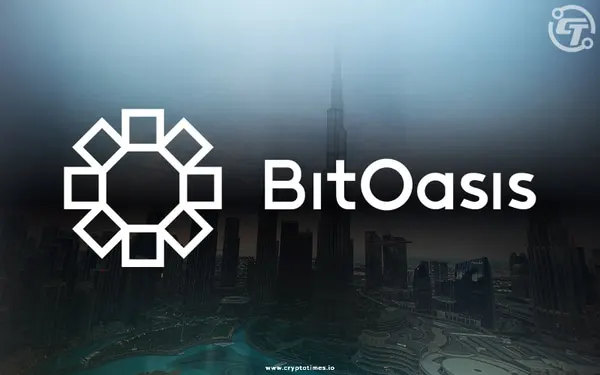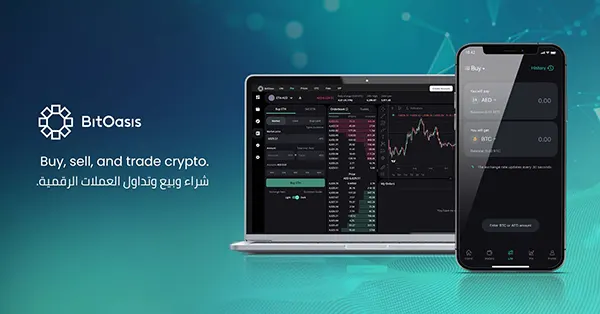
BitOasis: Expansion into the Middle East and Launch in Bahrain
In early 2025, BitOasis, the prominent cryptocurrency trading platform headquartered in the United Arab Emirates, announced a landmark expansion into the Kingdom of Bahrain. This strategic move comes on the heels of renewed regulatory alignment and a growing appetite for digital assets across the Gulf region. BitOasis’s entry into the Bahraini market is not merely geographical—it represents a deeper integration into a region poised for digital finance leadership.
Regulatory Breakthroughs and Licensing in Bahrain
The catalyst behind BitOasis’s expansion into Bahrain was its acquisition of a Category 2 Crypto-Asset Services Licence from the Central Bank of Bahrain (CBB) in January 2025. This license grants the company the right to operate as a fully regulated crypto-asset platform, enabling trading, custody, and asset transfer services. The CBB’s forward-thinking framework has turned Bahrain into a desirable jurisdiction for fintech and crypto firms in the Middle East.
This development is especially noteworthy given BitOasis’s temporary licence suspension in the UAE in 2023, which raised concerns about the regulatory stability of crypto operations in the Gulf. However, the company has since resolved its regulatory hurdles and now views Bahrain as a foundation for regional re-establishment and future growth.
BitOasis is now among a select group of crypto companies to hold such a licence in Bahrain. This credential not only underscores the platform’s compliance capabilities but also marks Bahrain as an attractive hub for institutional investors and retail users seeking regulated access to digital assets.
The Strategic Value of the Bahraini Market
Bahrain has been steadily emerging as a key financial centre for the Gulf Cooperation Council (GCC), with its robust fintech ecosystem and progressive digital asset policies. The Kingdom’s regulatory body, the CBB, has introduced frameworks since 2019 to attract blockchain and crypto innovations.
For BitOasis, entering Bahrain is a strategic lever to tap into a population with increasing interest in alternative financial systems. According to Chainalysis data from late 2024, crypto adoption in Bahrain grew by over 30% year-over-year, outpacing most GCC neighbours.
BitOasis aims to capitalise on this demand by offering a user-friendly, Arabic-language interface, low fees, and seamless on/off-ramps to Bahraini dinars. It also plans to roll out tailored educational initiatives to foster crypto literacy among both retail and enterprise users.
BitOasis’s Repositioning in the Gulf Region
The expansion into Bahrain signals BitOasis’s comeback after a challenging period marked by license issues and competitive pressure from global exchanges. Following its licence reinstatement in the UAE in late 2024, the company embarked on a Gulf-wide campaign to regain market share and user confidence.
Beyond Bahrain, BitOasis is actively seeking further regulatory clearances in Oman and Qatar. Its goal is to establish a fully compliant footprint across the GCC, which would allow for cross-border crypto services in a region where remittances and digital finance solutions are in high demand.
Strategic partnerships are also in motion. BitOasis is reportedly in talks with regional banks and telecom companies to facilitate fiat-to-crypto integration and mobile wallet access, particularly useful for the region’s large expatriate workforce.
Rebuilding Trust through Transparency and Education
BitOasis’s current roadmap focuses heavily on restoring trust after setbacks in 2023. The firm has publicly committed to publishing quarterly transparency reports and has adopted robust KYC/AML procedures aligned with FATF guidelines.
Educational outreach is a key pillar of BitOasis’s repositioning. In 2025, the company launched the “Crypto Academy MENA” initiative, offering free webinars, certification programmes, and online tutorials on blockchain basics, wallet security, and DeFi applications.
This dual approach—regulatory transparency combined with public education—has already begun to bear fruit, with BitOasis reporting a 45% uptick in new registrations from Bahrain within the first month of launch.

Outlook for 2025 and Future Implications
BitOasis’s expansion to Bahrain is emblematic of a larger transformation occurring in the Middle East’s financial sector. Governments are no longer approaching cryptocurrencies with suspicion; instead, they’re fostering frameworks to regulate, tax, and integrate digital assets into their broader economic strategies.
For BitOasis, 2025 may serve as the inflection point for regional dominance. The company is expected to expand its product suite to include staking services, tokenised real-world assets, and enterprise-level custody solutions in Bahrain before the third quarter of the year.
Moreover, analysts predict that the company’s successful entry into Bahrain will encourage other local fintech players to explore crypto offerings, thereby catalysing competition and innovation throughout the region.
A Gateway to Broader Regional Adoption
By planting firm roots in Bahrain, BitOasis is positioning itself as the primary conduit for regional crypto adoption. The Kingdom’s status as a financial gateway to Saudi Arabia and beyond could serve as a launchpad for more ambitious market entries in 2025 and 2026.
The rise of Central Bank Digital Currencies (CBDCs) in the region—particularly Saudi Arabia’s digital riyal project—may also create new opportunities for BitOasis to act as an interoperability layer between traditional and decentralised finance systems.
Ultimately, BitOasis’s move signals that the Middle East is ready to be more than just a crypto consumer—it’s positioning itself as a builder of the next wave of digital finance infrastructure.
